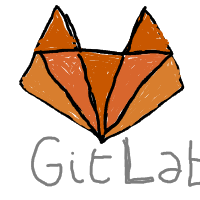Latest Posts
In my previous blog post, I showed how we can solve a puzzle in the IDP-Z3 reasoning engine. It was inspired by a post by Hillel Wayne, who modelled the puzzle in Prolog. He starts the article by stating how, for his book, he prefers showing off logic programming through practical examples instead of small puzzles, which I quite agree with. Here's the good news: in this post, I'll show you how the puzzle was actually a practical problem in disguise, and how it can be generalised to, e.g., the debugging of logic circuits1. :-) ...
last updated 2025-05-03 16:12:06 by Simon Vandevelde
A few days ago, I came across a post titled Solving a "Layton Puzzle" with Prolog, in which the author describes a Prolog implementation of a puzzle from one of the Professor Layton games. It's quite an elegant implementation (check it out!), and it made me think about how we could solve it using the IDP-Z3 reasoning engine instead. First, let's learn more about the puzzle. The description in text is essentially as follows: Mary, Dan, Lisa and Colin answered the same 10 A/B questions. Mary (BBABABBAB)...
last updated 2025-04-11 21:18:51 by Simon Vandevelde
I've been trying to learn Rust on again and off again for the past few months. To motivate myself, I wanted to fool around a bit with Z3 (an SMT solver) in Rust. This quickly turned into quite a bit of a struggle, as while there are Rust bindings available, I'm finding them fairly difficult to work with. I'm not sure if this difficulty stems from the bindings being unergonomic, or that my Rust knowledge is still too basic. Furthermore, I also haven't been able to find any good, accessible examples of simple toy problems modelled in...
last updated 2023-11-12 20:59:14 by Simon Vandevelde
Update: we recently investigated the synergy between DMN and GPT-3 and published a paper on it. You can read all about it here. ChatGPT has been all the rage, lately. Many people have been experimenting with it, from producing code and passing a computer science exam to succesfully writing emails disputing a parking fine. So, as a researcher in symbolic AI, this begs the question: can it craft decision models for us? This blog posts describes my attempt to have ChatGPT generate a simple Decision Model and Notation (DMN) model. Let's...
last updated 2023-11-05 21:11:13 by Simon Vandevelde
To play music on my pc, I use two different applications: cmus, for my local music ncspot, to connect to Spotify Both are minimalistic applications that work right out of your terminal. It would be cool, I thought, to show their status on my Sway status bar. So, I spent some time figuring out how to best do so. If you read this post, you can do so too! It's actually fairly simple: I have a status.sh script which is called by...
last updated 2023-01-15 14:57:45 by Simon Vandevelde
Almost two years ago, during the first covid dip in Belgium, I tried my hand at floral arrangements. And I've been hooked ever since! What started as an excuse to get my cousins round and spend time with our grandmother quickly grew into a bi-monthly tradition. The story of how we got started goes a bit as follows: my grandmother used to regularly partake in floral arrangement workshops, hosted by the local flower shop. With the arrival of covid lockdowns, she remarked that she was sad that the workshops...
last updated 2022-08-02 20:23:27 by Simon Vandevelde
Catan is a wonderful boardgame about strategy and chance. However, the chances of the game can become extremely skewed based on the board layout, which is typically decided randomly. This post describes how we can tackle this, and implements a tool (available online) to generate balanced boards using the IDP-Z3 reasoning engine, based on First Order Logic. Image from the Wikimedia Commons. Catan boards and balance Lets first get into what constitutes a Catan board. As shown in the image above, a Catan...
last updated 2022-06-29 11:22:04 by Simon Vandevelde
A while ago we had the idea for an "Art with AI" type project: a probabilistic extension of Game of Life (GoL), the well-known cellular automaton. The idea behind GoL is to start with a grid of living and dead cells, and to generate the "next" generation based on a set of rules. For example, in the image below we generate the evolution of the left grid to end up with the middle grid, and then do the same to the middle to end up with the right one. The rules used for these generations...
last updated 2022-04-18 15:41:28 by Simon Vandevelde
I recently wrote a Leuven.AI stories blog on my work on a knowledge-based decision support system for adhesive selection. Feel free to read it there! In a nutshell: selecting a suitable glue for a gluing task is time-consuming, and requires a lot of experience and knowledge. We captured this knowledge formally, and built a tool to support the adhesive experts in their selection. In a test case, usage of the tool has reduced the selection time from 3 hours to 3 minutes! ...
last updated 2022-03-31 08:17:02 by Simon Vandevelde
Sudoku is probably one of the most well-known logic games of all time. Naturally, people have written various computer programs to solve the game, using a multitude of techniques. In fact, searching for the key words "Sudoku Solver" on GitHub lists a whopping number of repos: 26K at the time of writing. We can also see that most implementations are in imperative programming languages, such as Python (9106 repos), Java (3805 repos) or C++ (2907 repos). This post describes a different approach for a sudoku solver, where we use the IDP-Z3 system, a declarative logic-based reasoning...
last updated 2022-03-06 15:21:11 by Simon Vandevelde





